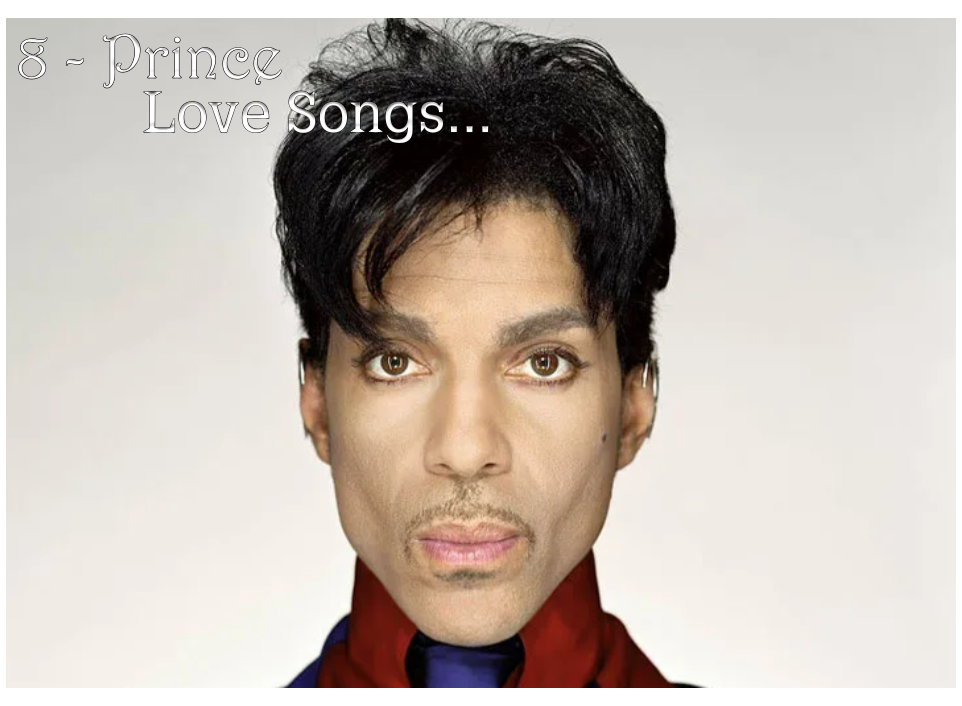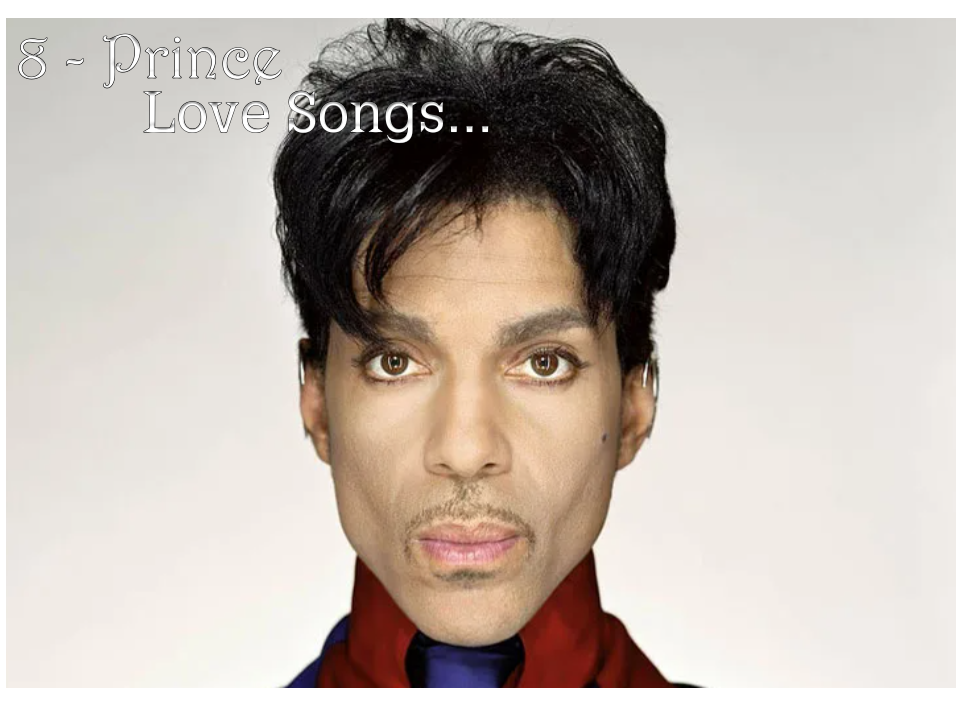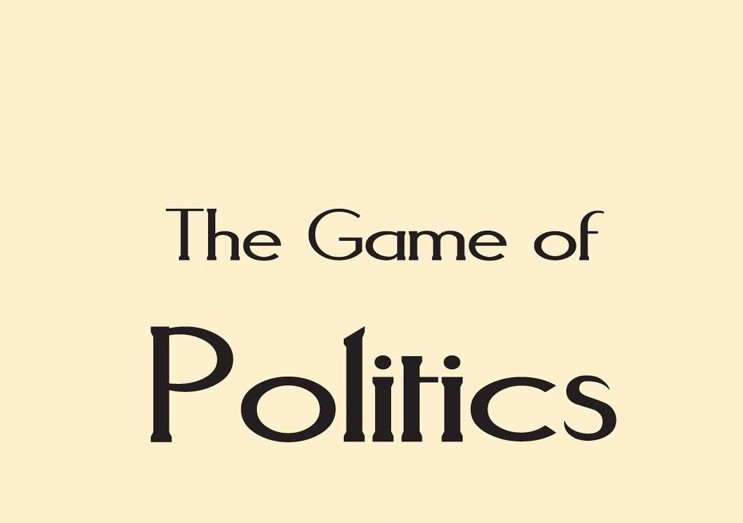-
 play_arrow
play_arrow
Praise 24/7 NO Today's Best Gospel

(ThyBlackMan.com) Prince Rogers Nelson’s music was always about more than rhythm and hooks—it was about emotion. He could transform love into an anthem, heartbreak into poetry, and desire into a symphony. While the world knows his blockbuster singles, the true magic of Prince lies in his ability to capture the vast range of love in songs that still hold power decades after their release. His catalog is overflowing with intimate ballads and romantic expressions, each one layered with vulnerability, passion, and sincerity.
Below are eight Prince love songs that deserve attention, each one showing a different facet of how he understood love. Whether through devotion, longing, playfulness, or heartache, these tracks prove that Prince’s vision of love remains timeless.

1. Insatiable
Released on Diamonds and Pearls (1991), “Insatiable” is among Prince’s most sensual ballads. The very word suggests endless desire, and the song captures that theme perfectly. The arrangement is slow and deliberate, with warm synths creating an intimate atmosphere. Prince’s falsetto hovers above it all, wrapping the listener in whispers and sighs that feel both personal and universal.
The strength of “Insatiable” lies in its tension between tenderness and heat. It’s not just a song about physicality—it’s about a connection so deep that time dissolves. Prince lingers on every word, drawing out the anticipation as if he knows the listener doesn’t want the moment to end. It feels like a conversation taking place in the quietest hours of the night, where truth spills out freely and without shame.
More than 30 years later, “Insatiable” still feels daring. In an era where romantic music often leans heavily on production tricks, Prince’s raw, almost unguarded approach here feels refreshing. The imperfections are what make it human, and therefore relatable. His falsetto cracks ever so slightly, his phrasing sometimes stretches, but instead of breaking the spell, it makes the song feel more alive.
Today, the track continues to work as a late-night confession, a reminder that love can be both vulnerable and unrestrained. For those who encounter it for the first time, it’s a blueprint of how sensuality and sincerity can exist together without ever feeling forced. Few songs capture intimacy in such an unfiltered way, and it remains a testament to Prince’s gift for transforming desire into art.
2. Adore
“Adore,” from Sign O’ the Times (1987), is a declaration of everlasting devotion. It’s one of Prince’s most celebrated ballads because of its emotional depth and stripped-back arrangement. The instrumentation is sparse—gentle organ, restrained percussion, soft flourishes—leaving space for his voice to guide the experience.
Prince sings with vulnerability, shifting from soft confessions to soaring falsetto. His performance feels like a vow, almost as if he’s whispering into the ear of someone he can’t imagine living without. Lyrics such as “Until the end of time, I’ll be there for you” take what could be cliché and transform it into something eternal. He doesn’t just sing about love—he embodies it, as though the promise is real and binding.
The beauty of “Adore” is in its timelessness. Couples still play it at weddings, anniversaries, and intimate gatherings, proof of its enduring emotional impact. Younger generations discover it on streaming platforms and are struck by how personal and genuine it feels compared to modern ballads. Unlike many love songs that chase trends, “Adore” is rooted in sincerity. It’s slow, patient, and built to last, much like the love it describes.
The song demonstrates how Prince could step away from his flamboyant persona and reveal his most authentic self. It’s a love song that doesn’t rely on spectacle—just honesty, tenderness, and a voice that makes the promise believable. That’s why, decades later, “Adore” still holds its place as one of the greatest ballads in the history of R&B.
3. Do Me, Baby
On Controversy (1981), “Do Me, Baby” became one of Prince’s earliest showcases of his ability to merge sensuality with vulnerability. Written by André Cymone but perfected through Prince’s interpretation, the track builds gradually, moving from quiet restraint to a full-throated plea.
The song’s structure is deliberate. Prince spends much of it holding back, teasing the listener with calm verses before letting go in the final minutes. His cries and improvisations blur the line between performance and real emotion, making the ending unforgettable. What makes it so remarkable is the way he blurs boundaries between artist and listener—it feels less like a performance and more like an emotional breakdown set to music.
For fans of slow jams, “Do Me, Baby” remains a touchstone. Its influence can be heard in countless R&B tracks that try to balance passion with emotional honesty. Even in 2025, when most songs are crafted to grab attention in under a minute, this one insists on patience. It asks you to sit with it, to feel the buildup, and to surrender when the release finally comes. That patience is what makes it so rewarding.
The song also shows Prince’s mastery of pacing. Rather than rushing to climax, he stretches out the anticipation, proving that love songs are about more than words—they’re about how the music manipulates emotion. “Do Me, Baby” is one of those tracks that should be played when you want to stop time and let feeling take over. It’s a reminder that the greatest love songs don’t simply describe intimacy—they embody it.
4. International Lover
Found on 1999 (1982), “International Lover” is a playful yet deeply sensual song that shows Prince’s theatrical side. Using the metaphor of a romantic encounter as a luxurious flight, he positions himself as the pilot guiding his partner through an unforgettable journey.
What could have been a novelty becomes, in Prince’s hands, a work of seduction. His spoken-word introduction is humorous and charming, while his falsetto gives the track a smoldering quality. The balance between wit and sensuality makes the song unique and timeless. It feels like a wink and a caress at the same time, playful but never insincere.
Listening today, “International Lover” stands as proof that love songs don’t always need to be serious to be effective. They can be creative, clever, and even funny while still being genuinely romantic. Modern artists may use humor in their music, but few match Prince’s effortless blend of playfulness and intimacy. The metaphor extends far beyond the gimmick—it paints a picture of love as adventure, luxury, and escape.
It’s also a reminder of his storytelling gift. He could take an unusual concept and spin it into something rich and engaging, expanding the possibilities of what a love song could be. “International Lover” is as fun now as it was when it first dropped, and it still works as both a romantic fantasy and a testament to Prince’s ability to push boundaries. In the pantheon of his ballads, this one shows that laughter, charm, and seduction can all live in the same space.
5. The Beautiful Ones
On the Purple Rain soundtrack (1984), “The Beautiful Ones” delivers one of the most emotionally raw performances of Prince’s career. It’s not a simple love ballad—it’s a plea, a cry of desperation from someone caught in the grip of desire and uncertainty.
The song begins gently, almost fragile, with delicate synths framing Prince’s soft vocals. As the track progresses, the intensity builds, erupting into anguished screams in the final verses. By the time he repeats “Do you want him, or do you want me?” the song has transformed into an emotional storm. This climax remains one of the most unforgettable moments in pop music history, a pure distillation of longing and heartbreak.
Even decades later, “The Beautiful Ones” retains its devastating power. Anyone who has ever experienced unrequited love or the torment of competing affections can relate. It’s impossible to treat this as background music—it demands attention, pulling listeners into its drama and forcing them to sit with their own memories of love and loss.
What makes it timeless is not just its emotional punch but its honesty. Prince doesn’t wrap the pain in metaphor; he shows us love’s desperation in its rawest form. He isn’t hiding behind persona or bravado—he’s laying his heart bare. That honesty is what keeps it alive today, ensuring it continues to strike listeners who encounter it for the first time.
6. Nothing Compares 2 U
Though Sinéad O’Connor’s 1990 rendition made it a global hit, “Nothing Compares 2 U” was originally written by Prince in 1985 for his side project The Family. His own live versions, particularly the ones with The Revolution, reveal the song’s haunting beauty as he envisioned it.
This track is pure heartbreak. It isn’t about desire or devotion but about the emptiness left when love is gone. The details in the lyrics—the way life feels unbearable in the absence of a partner—hit with simple, devastating precision. It’s the everyday things, like doing chores or walking through familiar places, that remind the narrator of the loss. That specificity makes the grief universal.
For listeners today, the universality of the song makes it timeless. Whether the loss is from a breakup, death, or emotional distance, everyone can recognize the pain Prince describes. Its simplicity allows it to cut deeper than many more elaborate ballads. Unlike songs that try to mask heartbreak with hopeful refrains, “Nothing Compares 2 U” sits fully in its sorrow and lets the listener share in that space.
The track is also a reminder of Prince’s unmatched songwriting skill. Stripped of flamboyance, he reveals his core gift: articulating emotions that feel impossible to put into words. Few songs capture grief with such clarity, making it an essential piece of his legacy. That’s why both his version and O’Connor’s remain staples of heartbreak playlists today.
Finish story here; 8 Prince Love Songs for Heartbreak, Passion, and Devotion.
Written by: Black Gospel Radio
-

Praise 24/7 Commercial Free
For every Show page the timetable is auomatically generated from the schedule, and you can set automatic carousels of Podcasts, Articles and Charts by simply choosing a category. Curabitur id lacus felis. Sed justo mauris, auctor eget tellus nec, pellentesque varius mauris. Sed eu congue nulla, et tincidunt justo. Aliquam semper faucibus odio id varius. Suspendisse varius laoreet sodales.
close Top popular

The Science of Happiness – Exploring Factors for Well-Being

Balancing Act: Prioritizing Your Well-Being in a Busy World

Overcoming Procrastination – Strategies for Productivity and Success

Unlocking Hidden Potential – A Guide to Personal Growth

Mindful Living – Cultivating Presence in the Modern Era

CONTACT US
- info@praise247no.com
FOLLOW US
- Praise247NO
- Praise247NO
- Praise247NO
Copyright 2024 Praise247no.com - All Rights Reserved.




Post comments (0)